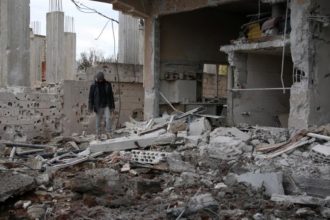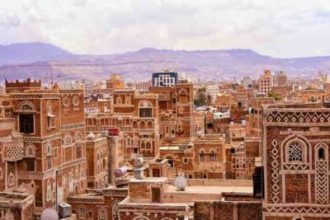
A man inspects a damaged house after an airstrike on al-Yadouda village, in Deraa Governorate, Syria, February 15, 2017. REUTERS/Alaa Al-Faqir
Date: 25 May 2018, 14:30 – 17:30.
Location: The Royal Institute of International Affairs, Chatham House, 10 St James’s Square, London.
Although the conflict in Syria continues unabated, there has already been a shift of focus onto Syria’s reconstruction. Many international actors have refused to contribute to Syria’s reconstruction until a political strategy towards settlement is negotiated. Some are unsure of how to proceed, and others have expressed interest. While Syrians are entitled to having their country rebuilt, participating in reconstruction in Syria may support the narrative that the conflict is over and thus weaken the calls for accountability and justice.
This event aims to shed light on the risks, opportunities and challenges that should be taken into account by various stakeholders such as governments, businesses and NGOs when approaching reconstruction in Syria. The event will include two panels in which speakers will address the human rights aspects of reconstruction including political and economic issues that may impact the pursuit of accountability.
If you wish to register, click here.


 Global Rights Compliance
Global Rights Compliance